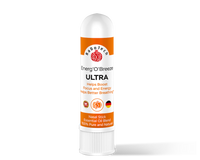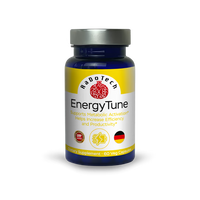An excursion into tradition
The Mediterranean diet is not a strict “food code,” but a reflection of the lifestyle of the inhabitants of Greece, Italy, Spain, and coastal France in the mid-20th century. The diet was based on simple, fresh and natural products, prepared without complex technologies: vegetables, greens, legumes, whole grain bread, unrefined fresh olive oil, various nuts, fresh fish and seafood. Red meat was rarely consumed, dairy products - in the form of cheese and yogurt, and sweets were limited to fruits and honey.
At first glance, the diet appears to be “high in fat” – but this is mainly unsaturated fatty acids from olive oil, nuts and fresh fish. Protein is light and high-quality, carbohydrates are mostly “slow”, and there are practically no processed products and “fast sugars”. Traditionally, fruits are eaten after meals, which further reduces the rate of absorption of fructose from whole fruits.
It is important to remember that this style of eating was formed in conditions of warm climate, high physical activity, constant exposure to fresh air and proximity to the sea. Hence the paradox: it is literally impossible to transfer it to regions with cooler weather without adaptation.
Diet or lifestyle?
Any "diet" in the medical sense is prescribed by a doctor strictly according to indications, and should be monitored by a doctor, a specialist or a health technologist. In other cases, it is more appropriate to talk abouteating styleAnd the main thing here is not dogma, but principles: more whole foods, less industrial processing.
But there are nuances.
- In case of intestinal diseases, nuts and seeds, traditionally included in the Mediterranean diet, can aggravate the condition.
- In the northern regions the body needs animal fats for thermoregulation and protection of cell membranes. There are few of them in the classic version of the diet.
- Vitamin D3 deficiency is replenished only by vitamin D3 supplements, necessarily in combination with vitamin K2 in the form of MK7 (after blood test), since neither the sun nor the products in our latitudes will provide a sufficient level to correct it in time.
That's why Before changing your diet, it is important to take tests, correct deficiencies, it is advisable to check the body using RaDoTech - FDA registered device for essential health monitoring, to identify hidden or incipient problems, and only then gently restructure your diet.
What exactly does the Mediterranean diet provide?
Modern research confirms that, provided that you are physically active and have a balanced diet, this dietary pattern reduces the risks of:
- Cardiovascular diseases– by reducing inflammation, normalizing the lipid profile and blood pressure.
- Type 2 diabetes– due to the low content of fast carbohydrates and high level of fiber.
- Cognitive impairment– Omega-3 and antioxidants protect the brain from aging.
- Obesity and metabolic syndrome– the diet is rich in foods that cause rapid satiety.
- Depression and anxiety– studies show a link between sufficient omega-3, magnesium, B vitamins and mood stability.
On average, people who follow a Mediterranean diet have a longer life expectancy and experience “quality” aging, which leads to active longevity.
Analysis of the diet by macronutrients
- Squirrels: fish, seafood, poultry, legumes, some dairy products.
- Fats: mainly unsaturated (olive oil, nuts, seeds), plus omega-3 from fish.
- Carbohydrates: whole grains, vegetables, whole fruits are sources of fiber and vitamins. Fast sugars are almost absent.
But! This diet is inextricably linked to the way of life– regular exercise, time outdoors, lower levels of chronic stress. It is difficult to separate the effects of diet from those of lifestyle.
Adaptation
In order to benefit, but take into account our realities, it is important don't copy blindly, and select products with a similar nutritional profile:
- Instead of sea fish - river fish (salmon, trout, pike), as well as omega-3 supplements (it is important to look at the dosage of EPA and DHA and try to get a total of 3g per day, and better 4-5g).
- If it is difficult to find real unrefined cold-pressed olive oil, buy high-quality linseed, rapeseed or cold-pressed sunflower oil. These oils are unrefined and we do not fry with them!
- Legumes, whole grains, and seasonal vegetables are widely available.
- Fruits are replaced with familiar local varieties of apples, pears, and various berries (fresh in summer, frozen in winter).
- Animal fats (butter (82.5% and higher), lard (or fat tail fat), fatty meat in moderate quantities) are especially needed in cold weather to support the kidneys and liver, and protect the female reproductive system. Broths.
- Adapt, taking in account your “weakest link in a chain”, the organ that performs at the present moment lower, then every other organ, and needs help and profile nutrition. RaDoTech device here is by far best solution to detect such “link” and to get suggestions on how to address it.
Beginners' mistakes
- Abrupt transition– the body gets stressed, bloating, diarrhea or loss of strength appear.
- Overeating Nuts and Butter– the calorie content easily “flies away”, the effect on the figure is lost.
- Ignoring blood tests– deficiencies of vitamin D, iron, total and transport protein, insulin, glycated hemoglobin, TSH for thyroid control, B12 can ruin all efforts.
- Belief in a "magic diet"– health is always made up of nutrition, movement, sleep and psycho-emotional state.
How to start without stress
- Step 1.Add more fresh or lightly steamed vegetables to each meal.
- Step 2.Replace your usual sweets with fruits or natural dried fruits, but only after meals.
- Step 3.Include fish or seafood at least once a week.
- Step 4.Use unrefined, cold-pressed vegetable oils for dressing.
- Step 5.Gradually reduce deeply processed foods - sausages, semi-finished products, soda. Be sure to drink enough drinking water, at least 30 ml per kilogram of body weight
Example of a simple weekly plan (adapted)
- Breakfast:omelette with vegetables + whole grain bread (can be with butter).
- Snack (better without it, but if necessary…):an apple and a handful of nuts (if there are no problems with the gastrointestinal tract).
- Dinner:Lentil soup, salad with butter, fish or chicken.
- Afternoon snack:Natural yogurt without sugar and flavor additives with berries.
- Dinner:stewed vegetables + fish/poultry/veal.
- Fish, poultry, meat, seafood:Alternate the source of complete animal protein during the week according to your taste and possibilities. Focus on 1.5-2 g of protein per kilogram of body weight (it is possible in a combination of animal and vegetable protein in an approximate proportion of 60% animal and 40% vegetable source).
Main
The Mediterranean diet is not a magic pill, but a working model of nutrition and lifestyle, tested by time. But for it to be useful where you live, or anywhere else, it needs to be adapted to the climate, activity level and your individual health characteristics measured by RaDoTech. It is better to start gradually, relying on tests and common sense.
© Berlinsky Igor Ph.D.









